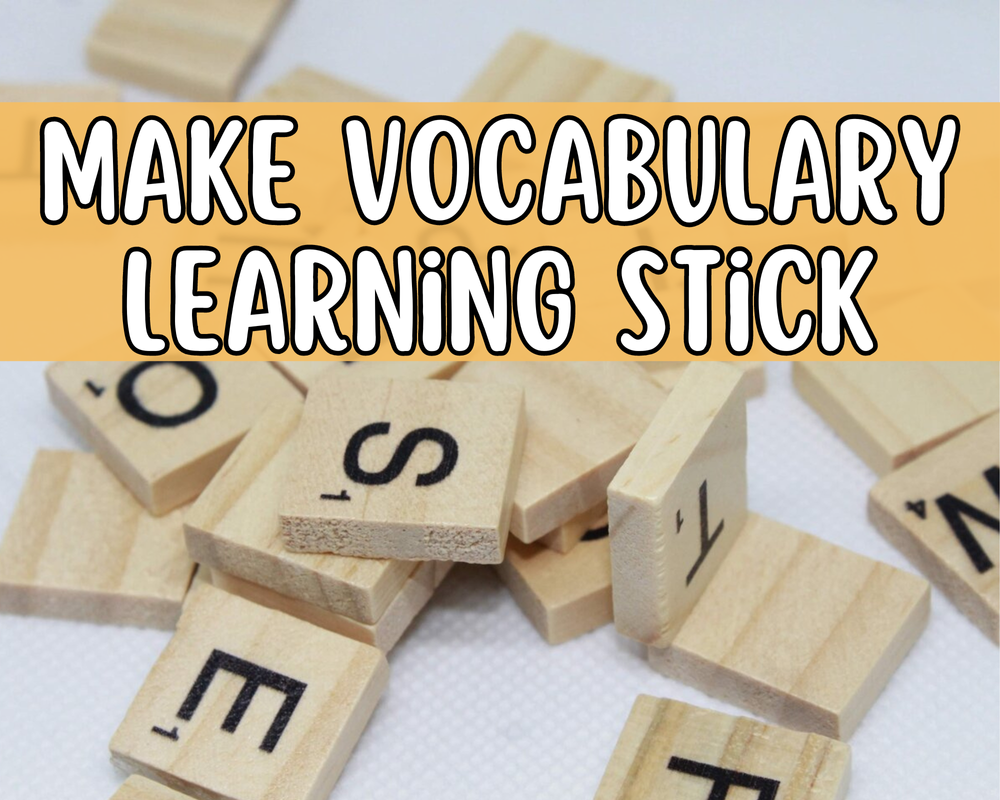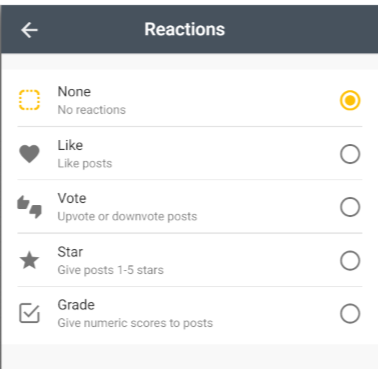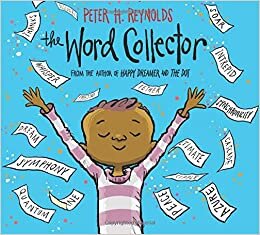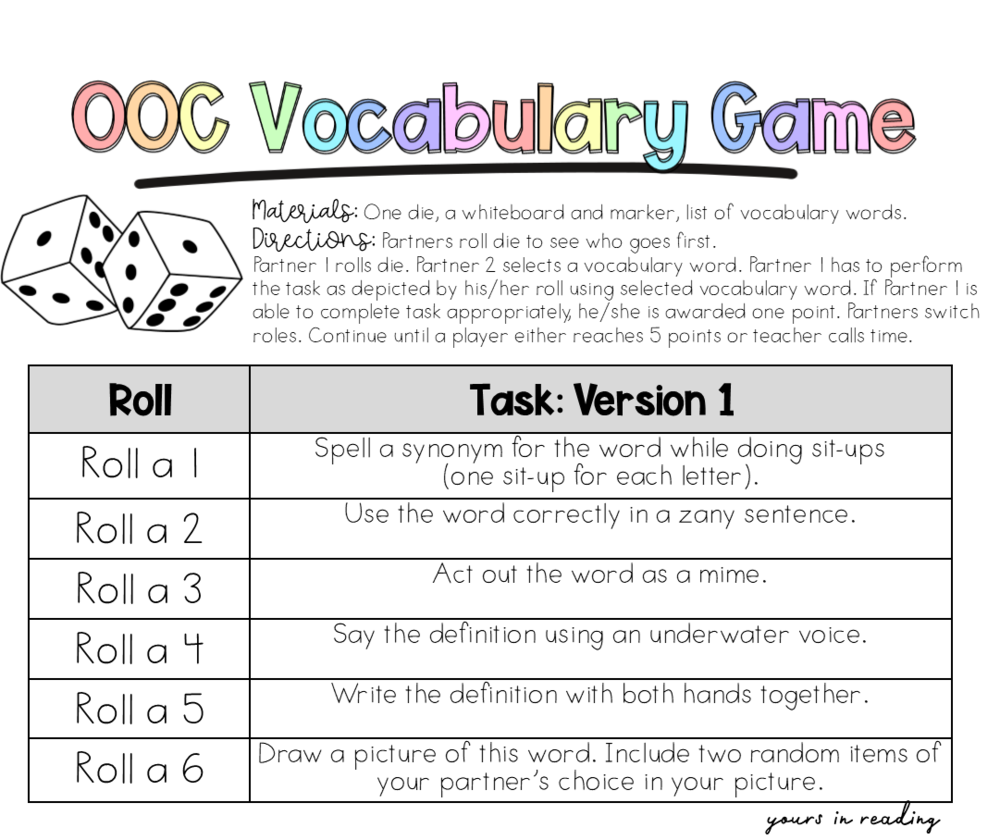How to Make Vocabulary Learning Stick: Vocabulary Activities for the Classroom

If you are an intrepid elementary teacher looking for engaging and meaningful vocabulary activities then look no further! In this post you will find vocabulary best practices, routines, games, and discussions to aid in vocabulary learning.
“I like good strong words that mean something.”
— Louisa May Alcott
Let me shoot straight right from the start. This is not about vocabulary instruction.
I believe our instruction is sound; we use analogies, kid-friendly definitions, semantic maps, cognates and roots, visual aids, and contextual support until the cows come home. But if you need a refresher, here are some simple research-based strategies that you can read on your next bathroom break.
Good Lord, we’ve taught the words.
This post is about what happens after the instruction. The long-term vocabulary retention.
Once we’ve introduced the dang words, how can we make the meanings stick like a gooey wad of gum smooshed onto the sole of their shoes?
I’m going to lay my favorite vocabulary-sticking secrets out there in three easy-to-implement categories.
Ready for ‘em?
1. Routines
2. Games
3. Discussions
I know. Those sound pretty anticlimactic. But don’t be misled by their simple-sounding nature!
I promise you the following vocabulary activities and practices are FUN, FUNNY, and pretty darn effective in making those meanings stick.
Vocabulary Routines
Word Collections– This may be a given, but is definitely worth noting as a part of a regular vocabulary routine. I start the year by reading Peter H. Reynold’s The Word Collector. We discuss the importance of word knowledge as readers, as writers, and as speakers and listeners. Students are invited to collect words in any way they’d like. They write them on note cards, jot them in their journals, scribble them on bookmarks, and scrawl them on their desks using Expo markers. We also have a giant class word collection located on the front of my cabinet wall that houses all of our new and old vocabulary words for students to glance at whenever they need to.
Random Vocabulary Stories– This is one of our favorite vocabulary activities! My students write a random vocabulary story at least once a week. I have them choose six of their vocabulary words (you can assign more or fewer) and assign three random words. For instance, the directions might say:
Good morning, wondrous writers! Today’s random vocabulary story should include at least six magnificent vocabulary words of your choice and also the following random words: stapler, spicy hummus, and orangutan.
It’s fun sitting back and watching what kind of stories they come up with. But the real fun occurs when they go to go to share their stories. Writers who volunteer to share their stories also get to select a classmate to act out their random antics at the exact same time. The results are pretty hilarious. I’ve had big fat tears roll down my cheeks from laughing so hard. I’ve also had some real close calls in the bladder department, but that’s another story. The point is, it’s funny for them and also pretty darn funny for you. Listen, it’s a long day and we’ve got to get our kicks somehow.
Vocabulary skits– Kids love performing! I write each of our vocabulary words on a scrap of paper, fold them up real tiny, and then place in my special black magic sparkly hat (but any ‘ole container will do). Once students are placed in groups of two or three I walk around and allow one representative from each group to pick a scrap out of the hat. Once the groups know their words they get to planning their skits. I limit them to five minutes of planning and one minute of performing, but allow however much time works for you. Now, the ONE stipulation that I throw out is that they cannot say their vocabulary word while performing their skit. They can use a synonym or two, but not the actual word. I circulate around to each group during their planning/practice time to listen to their ideas, offer suggestions, and make sure they’re able to demonstrate the meaning of the word effectively.

Once the five minutes are up it’s show time! I place a theater background on the Activpanel and pull out my director’s clapboard. I also direct students to have a whiteboard and Expo marker on their desks. While each group is performing their skit, students at their desks are trying to figure out which vocabulary word they are acting out. When the skit is finished, students applaud politely and then jot down the vocabulary word they think was being performed on their whiteboards and hold them up in the air. It’s always amusing to see who can discern the correct word featured in the skit! {If you want to up the ante a bit, throw some costumes into the mix! I have a bin filled with old Halloween costumes, former bridesmaid dresses, masks, props, etc. *Everyone has old costumes/bridesmaid dresses shoved in a closet somewhere so I’ve found that if you send an email to parents asking for said props you will receive.}
Vocabulary Detective– Students love announcing when they’ve discovered a vocabulary word in their books! However, sometimes this comes at a real inopportune moment (“Mrs. Ryckman! Everyone!! LOOK!! I found smorgasbord in our standardized reading assessment!!) so at the beginning of the year they are directed to our Vocabulary Detective clipboard. When vocabulary words are found in the real world or in authentic texts, students are invited to record the word, where they found it, the page number (in case someone else wants to see it in its natural setting) and the person’s name who discovered it. By the end of the year we’ll have filled out multiple Vocabulary Detective pages! They can also have their own Vocabulary Detective page to keep in their binders or interactive reader’s notebooks.
Vocabulary Games
OOC Vocabulary Game– Here’s a wacky/random/silly game that I made up in one of my early teaching years and it’s been a hit ever since. The OOC stands for “Out of Control”, but before you say no thank you, I like my control listen to how it’s played. The only materials students need are a die, a whiteboard/marker, a list of words, and a partner. Students roll the die, choose a vocabulary word, and then perform the task (see pic). There are three versions, each one more random and weird than the last. It’s also interesting when you allow students to make up their own tasks 🤪.
Password– Gosh, we love this simple game! Split the class into two teams. Call on someone from each team to stand in front of the board and face the class. Write a vocabulary word on the board so that the class can see it, but the two students cannot. The two students take turns calling on people from their teams who will give them one word clues about the word. The first to guess the word gets a point for his/her team.
Human Tic-Tac-Toe– Use a roll of masking tape to create a giant tic-tac-toe board on the floor. Divide the class into two teams (girls vs. boys always works well). Call on a representative to answer a question about a vocabulary word (i.e. provide a synonym or antonym, use it correctly in a sentence, read the definition and have the student guess the word). If the student is able to do this correctly, he/she may choose a place on the tic-tac-toe board to sit. Choose a representative from the other team and repeat. Three in a row wins the round!
Vocabulary Discussions
YoTeach!– This is a super engaging way to have a vocabulary discussion digitally. I pose a question that includes the vocabulary word and students respond. Each answer is displayed in real time, which makes it fun to read back after everyone has responded.
Padlet– Just like YoTeach!, Padlet promotes discussion in a digital manner and is extremely simple to use. The teacher poses a vocabulary question and students can respond with an image that is then posted to the bulletin board. What’s neat about Padlet is that you can adjust the settings for students’ reactions. They can “like” a post, vote yes or no on a post, give a post 1-5 stars, or issue a numeric score. Although it may take a bit of modeling and explaining before getting started, I’m certain Padlet will be something you use in your classroom all year, spanning all aspects of the curriculum. I hope you try it out! You get three Padlets for free, but if you are a frequent user it may be worth convincing your principal to invest in a school account! Note: I would start by setting the reactions to None; otherwise it can distract from the vocabulary task!
Everyday Conversation: This may seem like a no-brainer, but look for multiple ways to incorporate vocabulary words in everyday discussion. The more ways they hear the words used, the deeper engrained they become in their memory! Reward students for using current and past vocabulary words in conversation in a natural (not forced!) manner. Enlist parents to incorporate vocabulary words at the dinner table or driving to soccer practice. Ask administrators or special-area teachers to throw out a word or two the next time they interact with your class. It takes a village to build a large vocabulary but it pays off in massive ways!

Are you willing to try any of these vocabulary activities out? What are some of your favorite vocabulary practices? I’d love to hear them!




